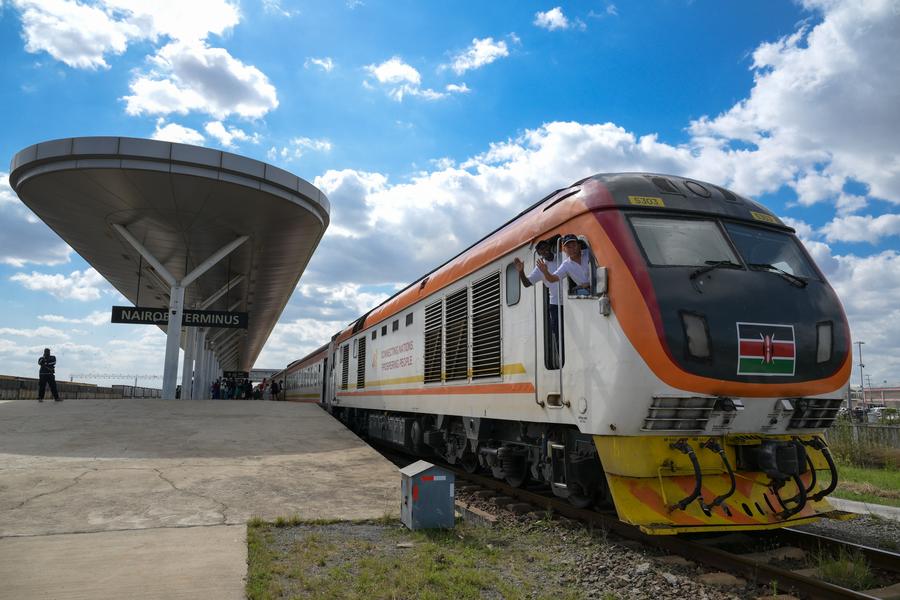A Journey of Partnership and Progress

While China-Africa engagements at different levels are well-known for tangible outcomes and deliverables, they also foster shared values through mutual learning and governance experience exchange.
At the turn of the 21st century, specifically from 10 to 12 October 2000, the first Ministerial Conference of the Forum on China-Africa Cooperation (FOCAC) was held in Beijing, following prior consultations. More than 80 ministers from China and 44 African countries attended. In a joint declaration issued at the end of the conference, both sides expressed strong appreciation for the stable development of Sino-African relations over the past decades, full confidence in future cooperation, and a shared belief that a solid foundation exists for friendly relations and collaboration, rooted in their long-standing traditional friendship.
Twenty-five years later, the trajectory of China-Africa cooperation has justified the optimism expressed at the inaugural FOCAC conference, where both sides affirmed their “full confidence in future cooperation” and agreed that “a solid foundation exists” for such collaboration, nurtured by their “time-honoured traditional friendship.”
Even prior to the establishment of the FOCAC mechanism, China-Africa cooperation had a time-honoured pedigree. As early as 1967, China undertook the construction of a nearly 2,000-km railway line between Zambia and Tanzania. It provided an interest-free loan to cover the cost of building the line, supporting infrastructure such as stations and training schools, and supplying locomotives and rolling stock. According to the agreement, the loan was to be repaid over a period of 30 years.
The proposal for the project – later dubbed the Freedom Railway or the Tanzania-Zambia Railway – was outrightly rejected at the time by major Western powers, who deemed it economically unviable. China, however, accepted the challenge and successfully completed the railway in 1976.
In 1971, 26 African countries, including Nigeria, were among 76 nations that voted at the United Nations General Assembly to enable China to regain its lawful seat at the UN. This vote helped to establish the enduring international consensus that there is only one China in the world, and that Taiwan is an inalienable part of China.
Partnership for development
These vigorous exchanges and mutual support laid the groundwork for the time-honoured traditional friendship between China and Africa, which ultimately became the solid foundation on which the FOCAC process was built. It is important to emphasise that despite the remarkable growth in China-Africa cooperation – particularly at the turn of the 21st century with the launch of FOCAC – this relationship is neither new nor purely transactional, as some commentators have suggested. Rather, it is rooted in traditional friendship and solidarity, shaped by shared experiences of colonial domination and imperialist exploitation, and more importantly, by a common aspiration for the social and economic well-being of their peoples.
Continuing its longstanding support for infrastructure development – beginning with the Tanzania-Zambia Railway – China, through the FOCAC mechanism and the Belt and Road Initiative, has helped Africa to build and renovate more than 10,000 km of railway, around 100,000 km of roads, over 1,000 bridges, and nearly 100 ports.

Among the major infrastructure projects is the first transnational electrified railway line between Ethiopia and Djibouti, spanning over 750 km. This project has significantly reduced both travel time and transportation costs between Ethiopia’s industrial heartland and the Port of Djibouti. Other notable examples include the Mombasa-Nairobi Standard Gauge Railway in Kenya and the Lekki Deep Sea Port in Lagos, Nigeria. The Lekki Deep Sea Port, with estimated economic benefits of approximately $360 billion, is also projected to create around 170,000 new jobs.
These are just a few among many connectivity projects across Africa constructed by China under the broader framework of bilateral cooperation. They address a long-standing gap in the quest for Pan-African unity – an issue formally acknowledged at the special session of the former Organisation of African Unity held in Lagos in 1980. The vision of continental connectivity and industrial take-off, outlined in the iconic Lagos Plan of Action, was initially undermined by World Bank opposition and a lack of political will.
Economic and trade cooperation have become the flagship of engagement between China and Africa. For 16 consecutive years, China has been Africa’s largest trading partner, with trade volume reaching a record $295.6 billion in 2024 – an increase of 4.8 percent over the previous year. Since the establishment of FOCAC in 2000, trade volume between China and African countries has grown at an average annual rate of 14.2 percent, rising from a modest $13.94 billion to the current record level.
More importantly, the trade structure – previously dominated by African exports of energy and mineral resources and Chinese exports of manufactured goods – is shifting towards high value-added sectors such as mechanical and electrical products, digital services, and green technologies.
In 2024, African exports of processed agricultural products to China, highlighting strengths in agro-processing and manufacturing, increased significantly. Chinese exports to Africa, including photovoltaic modules, industrial robots, and smartphones, also experienced remarkable growth.
To further enhance Africa’s access to the Chinese market, China established the China-Africa Economic and Trade Expo, aimed at showcasing African products to China’s vast consumer base.
At this year’s fourth edition of the expo, 176 contracts worth $11.39 billion were signed, a 45.8-percent increase compared to the previous edition in 2023. Beyond existing mechanisms granting concessional access for African products, China proposed last June to grant zero-tariff treatment on 100 percent of tariff lines for exports from 53 African countries with diplomatic ties.
Tangible outcomes
Since its creation in 2000, FOCAC has propelled bilateral cooperation between China and Africa into a phase of rapid, comprehensive, and stable development. Beyond establishing multiple cooperation mechanisms and trade facilitation initiatives, it has provided long-term institutional support for China-Africa relations. FOCAC has proven to be a viable dialogue platform, enhancing clarity and mutual understanding between the two sides. Vigorous exchanges continue across various sectors, including culture, education, and think tanks.
While China-Africa engagements at different levels are well-known for tangible outcomes and deliverables, they also foster shared values through mutual learning and governance experience exchange. Through the FOCAC process, inter-party consultations and civilisational dialogues are gaining momentum, bridging the geographical and cultural gaps between the two sides.
The author is director of Centre for China Studies at Abuja, Nigeria.
 Facebook
Facebook
 Twitter
Twitter
 Linkedin
Linkedin
 Google +
Google +










